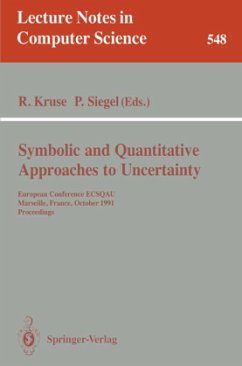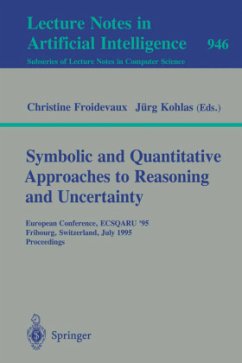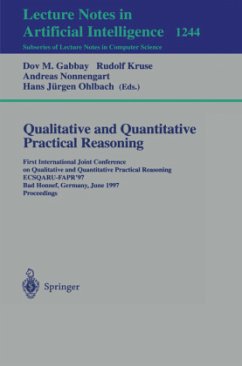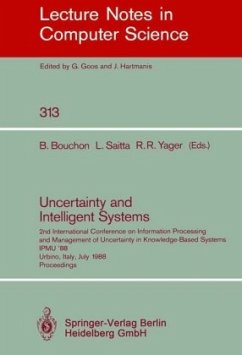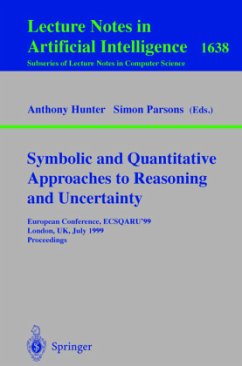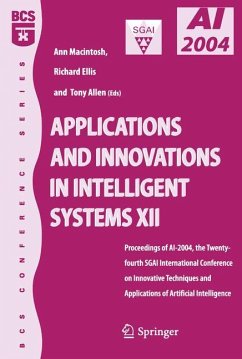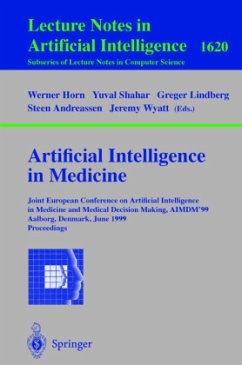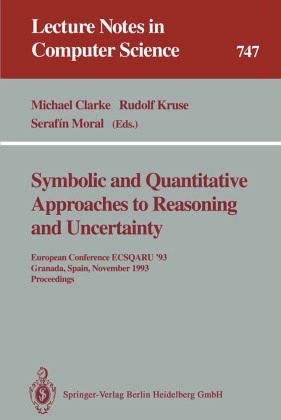
Symbolic and Quantitative Approaches to Reasoning and Uncertainty
European Conference ECSQARU '93, Granada, Spain, November 8-10, 1993. Proceedings
Mitarbeit: Clarke, Michael; Kruse, Rudolf; Moral, Serafin
Versandkostenfrei!
Versandfertig in 1-2 Wochen
39,99 €
inkl. MwSt.

PAYBACK Punkte
20 °P sammeln!
In recent years it has become apparent that an importantpart of the theory of artificial intelligence is concernedwith reasoning on the basis of uncertain, incomplete, orinconsistent information. A variety of formalisms have beendeveloped, including nonmonotonic logic, fuzzy sets,possibility theory, belief functions, and dynamic models ofreasoning such as belief revision and Bayesian networks.Several European research projects have been formed in thearea and the first European conference was held in 1991.This volume contains the papers accepted for presentation atECSQARU-93, the European Confe...
In recent years it has become apparent that an importantpart of the theory of artificial intelligence is concernedwith reasoning on the basis of uncertain, incomplete, orinconsistent information. A variety of formalisms have beendeveloped, including nonmonotonic logic, fuzzy sets,possibility theory, belief functions, and dynamic models ofreasoning such as belief revision and Bayesian networks.Several European research projects have been formed in thearea and the first European conference was held in 1991.This volume contains the papers accepted for presentation atECSQARU-93, the European Conference on SymbolicandQuantitative Approaches to Reasoning and Uncertainty, heldat the University of Granada, Spain, November 8-10, 1993.





